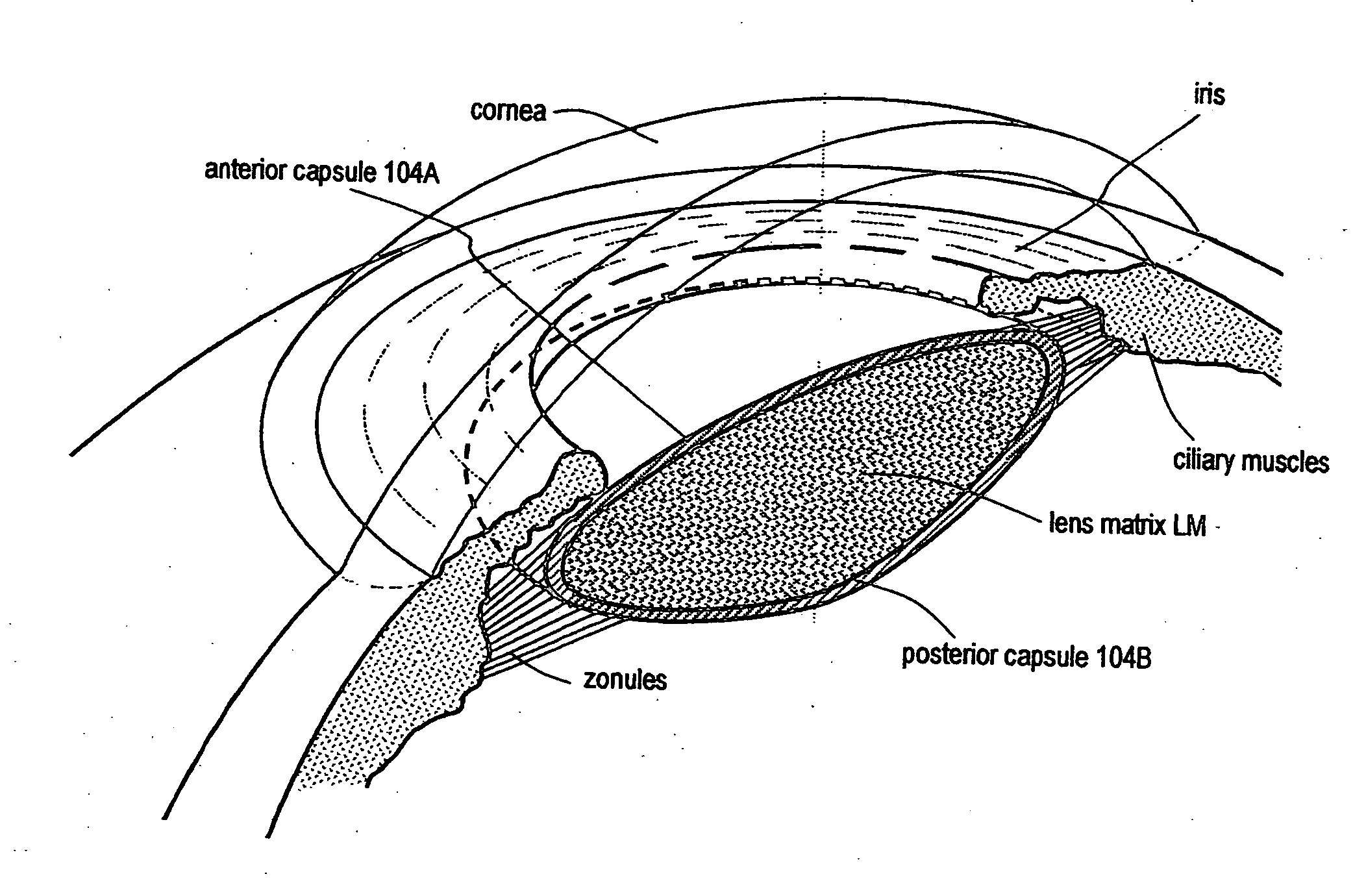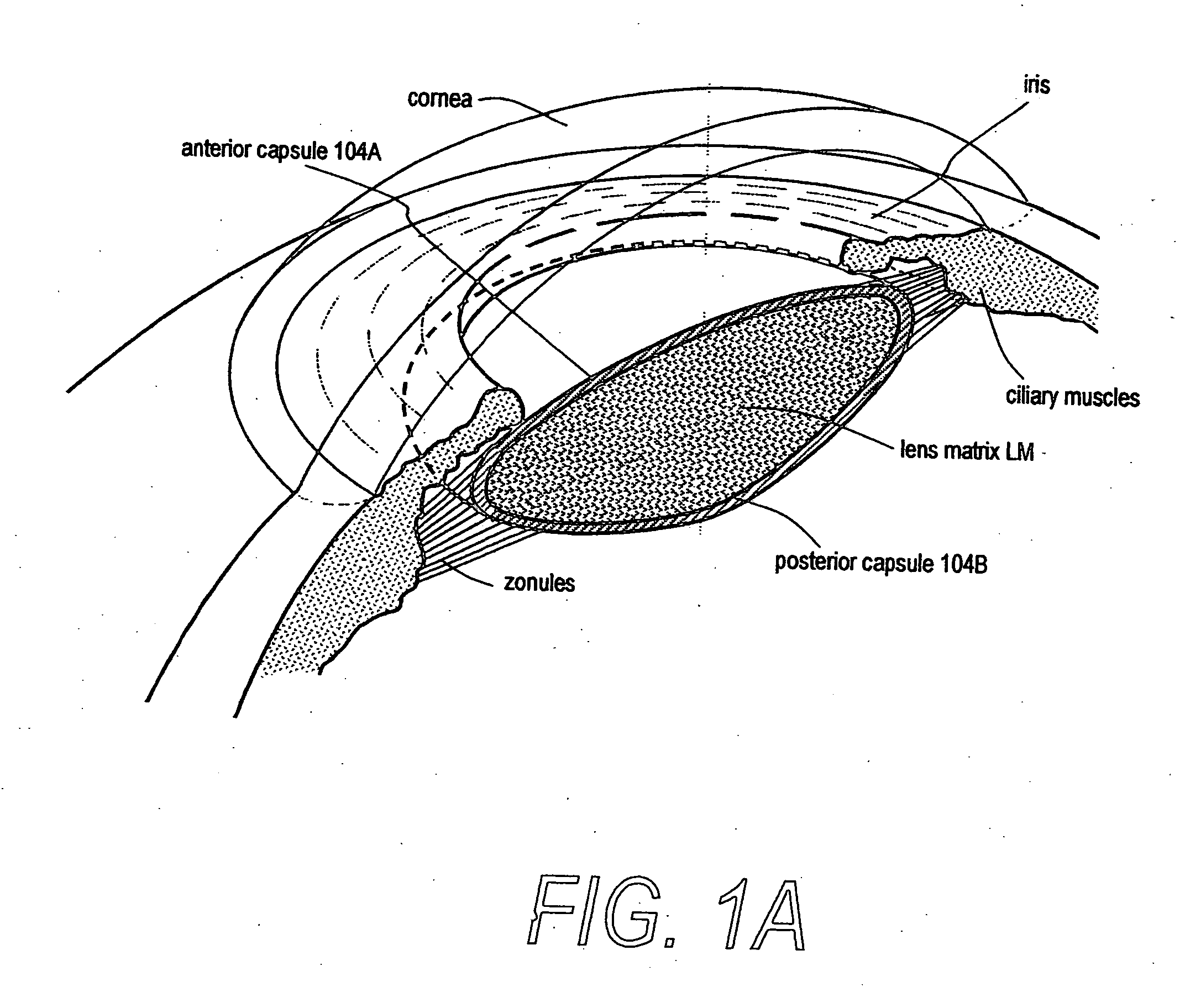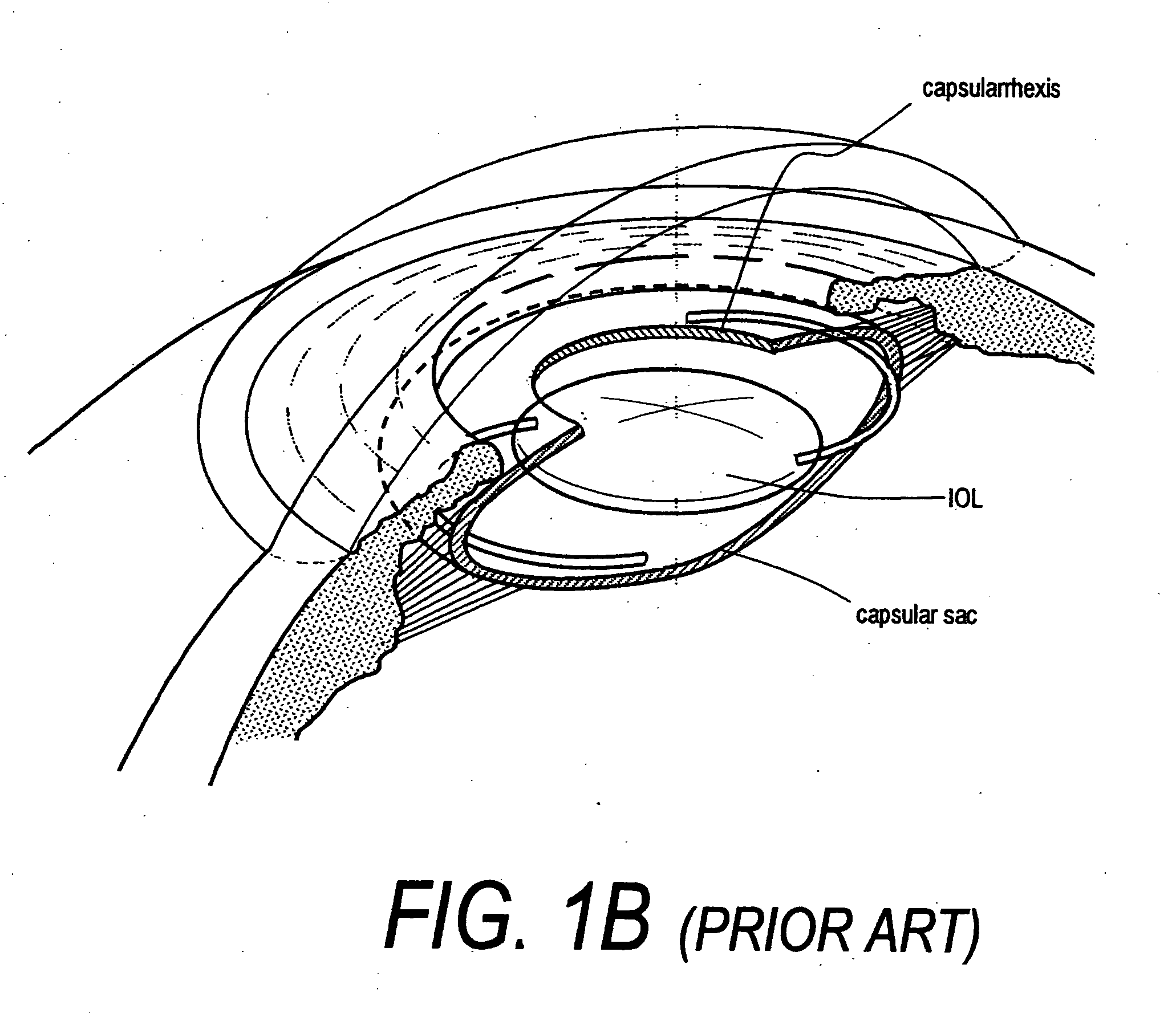Intraocular lenses and business methods
a technology of intraocular lenses and business methods, applied in the field of intraocular lenses, can solve the problems that the limited forces applied by the relaxation and contraction of the ciliary muscle to the lens capsule are not capable of optimally deforming a uniform modulus polymeric lens, and achieve the effect of low modulus
- Summary
- Abstract
- Description
- Claims
- Application Information
AI Technical Summary
Benefits of technology
Problems solved by technology
Method used
Image
Examples
Embodiment Construction
[0057] In one embodiment, the implants of the invention is adapted to provide a biomimetic lens capsule complex that will enable actuation of an accommodative lens body between first and second powers, wherein the implant can have several variants. The objective of the invention is to provide a responsive implant body that when engaged with the capular sac will mimic the inherent elastic response of a still accommodative lens capsule for cooperating with the ciliary muscles contraction-relaxation and vitreous displacement to alter the shape and power of an adaptive optic (e.g., a lens portion with a controlled deformable surface).
[0058] The biomimetic lens complex is provided by combining the lens capsule with a polymer implant body that engages at least the periphery of the capsule. The typical embodiments comprise, at least in part, a resilient polymer body that engages the periphery of a lens capsule and a central optic portion of a very low modulus polymer, optionally with a fl...
PUM
 Login to View More
Login to View More Abstract
Description
Claims
Application Information
 Login to View More
Login to View More - R&D
- Intellectual Property
- Life Sciences
- Materials
- Tech Scout
- Unparalleled Data Quality
- Higher Quality Content
- 60% Fewer Hallucinations
Browse by: Latest US Patents, China's latest patents, Technical Efficacy Thesaurus, Application Domain, Technology Topic, Popular Technical Reports.
© 2025 PatSnap. All rights reserved.Legal|Privacy policy|Modern Slavery Act Transparency Statement|Sitemap|About US| Contact US: help@patsnap.com



